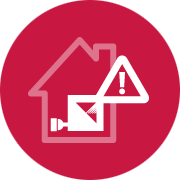Understanding Emergency Power Cuts
Emergency Power Cuts are very rare in Great Britain and National Energy System Operator (NESO) - the company responsible for balancing the amount of electricity generated with the amount customers are expected to use - produces an annual winter outlook which indicates if they are ever likely to happen.
Emergency Power Cuts (known in the industry as rota load disconnection) would only be used as a last resort if there was ever a major national energy shortage that could not be dealt with by a range of other measures first.
We want to share information to help you understand what they are, why they may be used and what you would need to know to be prepared if they were ever to happen.
For decades the industry, including Northern Powergrid, has tested each year procedures to safely carry out Emergency Power Cuts, in the unlikely situation that they’re ever needed.
Before NESO would instruct local network operators, like us, to temporarily cut some customers' power, they would take several other steps to protect supplies and avoid disruption. These can include:
- encouraging additional generation to meet demand,
- asking heavy industrial users to limit their demand during peak periods,
-asking or paying customers through the Demand Flexibility Service to change how and when they use appliances like washing machines, tumble dryers and dishwashers, and
- reducing voltage across the country by a small percentage which is not noticeable to customers, but would help reduce demand.
Being prepared
It is important to be prepared if your power supply is ever affected - whether it is due to a routine local network issue, the impact of severe weather or a wider national energy emergency.
Regardless of the cause of a power cut, if you rely on electricity to power medical equipment and don’t know what would happen to it in a power cut, you should speak to your medical provider now for advice. It is vital that you have a plan in place and that you test your backup supply arrangements, so you are ready if your power is ever affected. If you don’t have a backup plan, again you should speak with your healthcare or medical equipment provider. If you are not medically dependent on electricity, it is still important to be prepared and know what to do before, during or after a power cut.

Helpful information
DOWNLOAD DOCUMENTS




